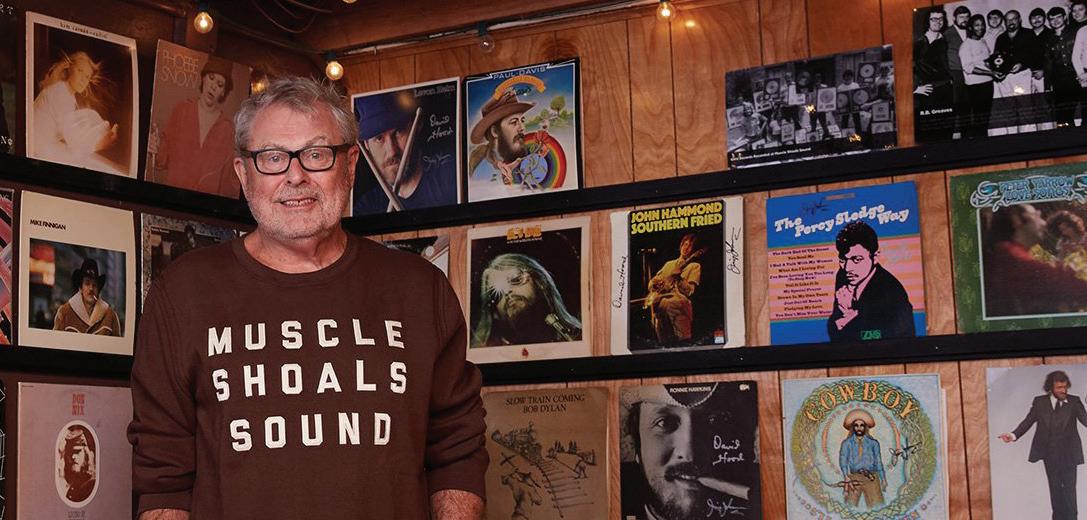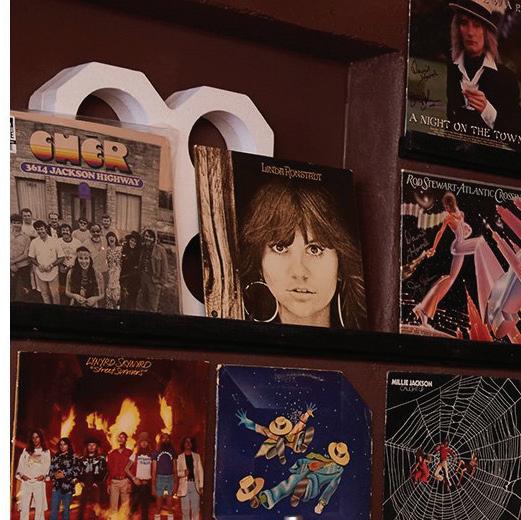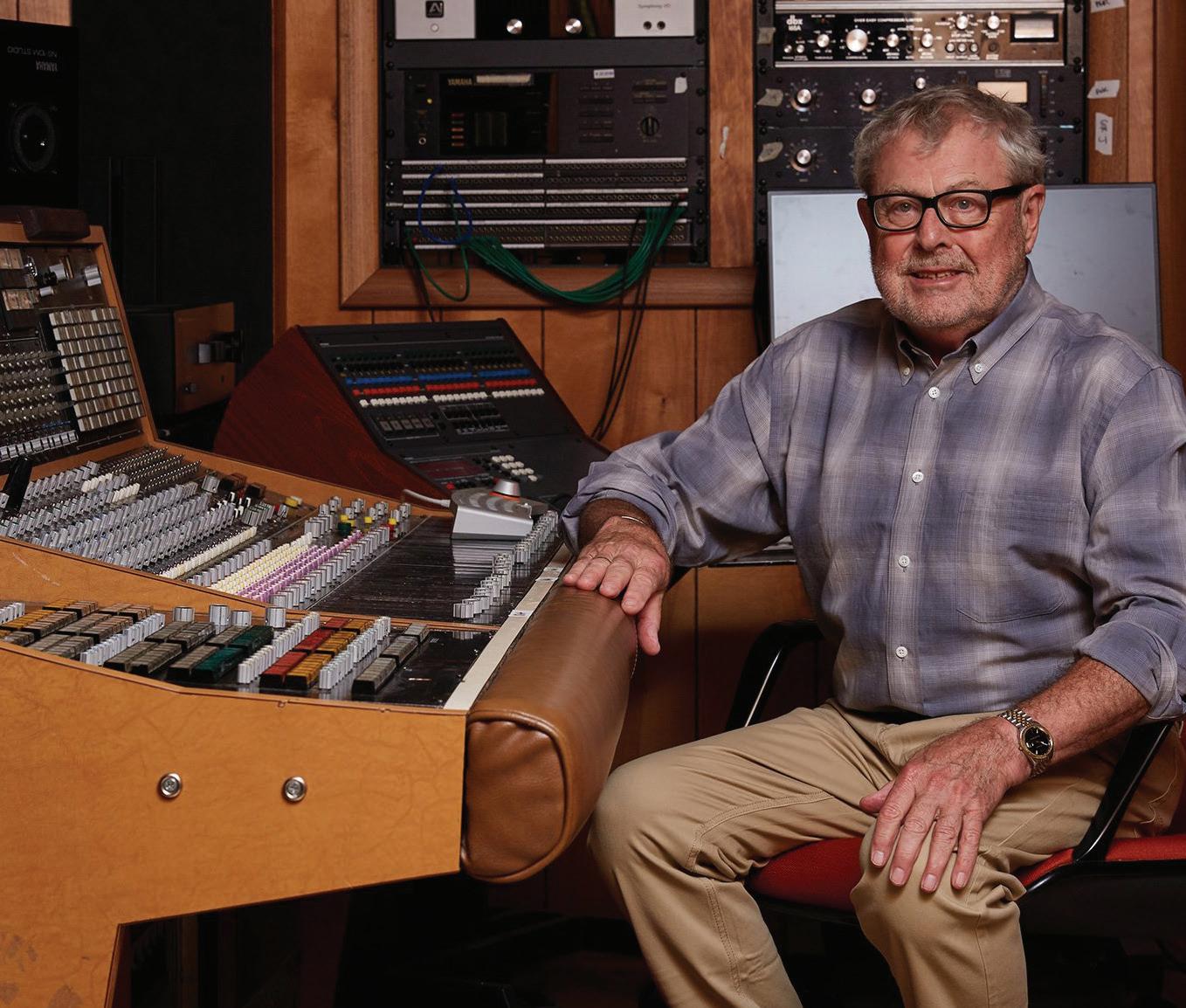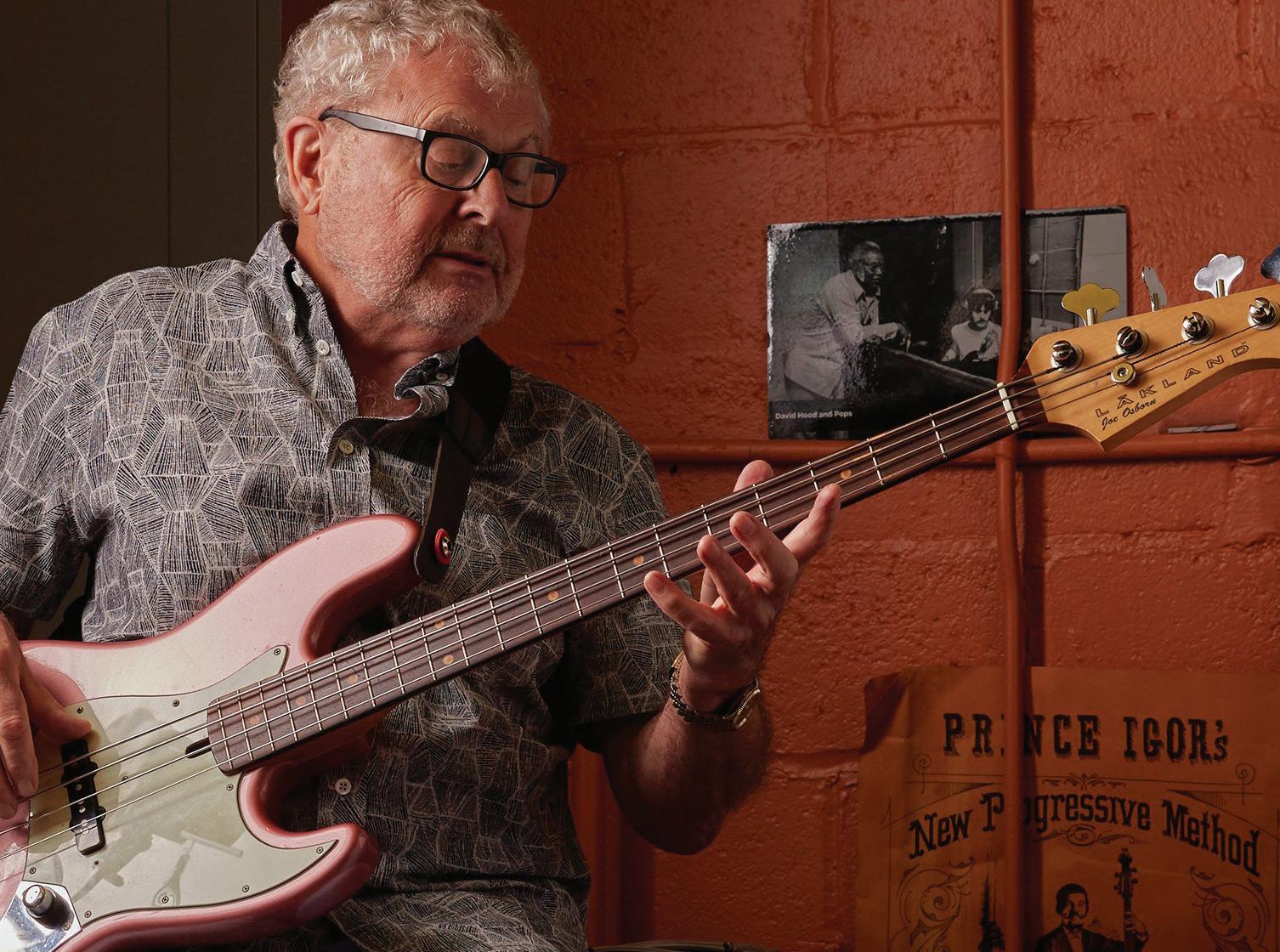
8 minute read
Living with Chronic Pain; David Hood
Living with Chronic Pain; David Hood
by: Kelly Reese
In today’s medical market, we continue to witness exponential growth in almost every area of healthcare specialty. Often times, stigmas around sub specialties like pain management have created many hesitations for both patients and physicians. Nobody wants a “push under the rug” approach of pills and addictions. But they do want effective treatments. Patients living with moderate or severe chronic pain have a significant decrease in their quality of life and deserve the best treatments. The amount of these patients continues to rise.
Researchers report that 50.2 million U.S. adults experience chronic pain based on analysis of new data.
They estimate the total value of lost productivity due to chronic pain to be nearly $300 billion annually. With more patients desiring the treatment of chronic pain, the surge in fellowship trained and board-certified sub specialists demand has been on the rise. This has led to the improvement of the quality of care across all areas of healthcare; especially in the are of chronic pain.
The stories are many... but one in particular involves a local musician, David Hood. David is a bassist by profession and has produced songs with the best of the best in the music industry, including Willie Nelson and Cher. He also has played bass on albums for Joe Cocker, Aretha Franklin, Cat Stevens, Rod Stewart, and Sheryl Crow, just to name a few. Unfortunately, this amazing musician has dealt with chronic back pain for a little over a decade. It continued for so long, it just became a way of life. David even learned to aid his handicap by strategically placing walking canes in rooms of his home to help get him place to place. But after his pain started to become debilitating and leaving him feeling helpless, he knew he had to seek treatment.
David received a referral from his primary care physician to go visit Dr. Michael Cosgrove, board-certified anesthesiologist specializing in pain management, Regenerative Medicines, and interventional medicine. Dr. Cosgrove’s initial thorough examination and MRI evaluation of David concluded his candidacy for an innovative device designed to target and relieve pain at the source. When David learned he was a candidate for a spinal cord stimulator; a device that is implanted sending low levels of electricity directly into the spinal cord to relieve pain, he was elated.
Luckily, the device has been a game-changer David. He gives all credit for his treatment to Dr. Cosgrove and the new technology available. “I am the picture of a satisfied patient. I was in such bad shape. Overall, I am doing so well! Dr. Cosgrove has turned things around for me.” David has put the canes away and is back to enjoying playing bass in the recording studio.
David’s success story is definitely one worth sharing, and there are lots more! Dr. Cosgrove uses a tailored approach to achieve the best patient outcomes. He delivers a comprehensive care plan which requires collaborative market innovation and evidence-based medicine, always utilizing revolutionary technologies.
Q & A for Inside Medicine Magazine, Spinal Cord Stimulation:
HOW LONG HAVE YOU SUFFERED WITH CHRONIC PAIN?
I have suffered with chronic pain for years. I had a back surgery in my early 60's that provided some relief for about five years. After that, it was right back to moderate to severe pain that became increasing worse until it affected my ability to function normally.
WHAT LED YOU TO GETTING THE SPINAL CORD STIMULATOR?
I was referred to Dr. Cosgrove by Dr. Stephen Howell, my pain management specialist in Florence. We had tried shots, medications, braces, physical therapy and it was to the point that nothing was relieving the pain. Dr. Howell thought I might be a good candidate for a spinal cord stimulator.
WHAT WERE SOME ACTIVITIES THAT YOUR CHRONIC PAIN HINDERED YOU FROM DOING?
Everything had become difficult. Even sitting passively through a dinner out with friends was difficult. Walking had become so difficult that I was using a cane to get around. Most importantly, I am a bass player and the pain was hindering my ability to work as a musician. Music is how I feed my soul so I was very depressed about that. My wife and I love to travel and it had become very difficult to walk through airports, fly on planes, etc. Long trips in the car were also very hard. We live on the lake and love to cruise in our boat, but even that was intolerable.
DO YOU FEEL LIKE THE SPINAL STIMULATOR HAS HELPED YOU GET BACK TO DOING THINGS THAT YOU WERE NOT ABLE TO DO BEFORE?
Absolutely! When they did the trial procedure I was amazed at the outcome. I had suffered from severe pain in my lower back and down my right leg. The stimulator targeted that pain and blocked the pain messages to my brain. It was like a miracle. I was so excited to think about “getting my life back.” I had given up hope, and suddenly all of these possibilities were opening up for me.
WHAT TREATMENTS WERE YOU RECEIVING PRIOR TO GETTING A SPINAL CORD STIMULATOR?
Surgery, shots, medication, physical therapy, chiropractor.
DO YOU FEEL LIKE YOU LIVE A NORMAL LIFE WITH THE SPINAL STIMULATOR?
I’m 78 years old, so “normal” becomes a relative term but I am functioning at a much higher level than I was before the implant. I had the spinal stimulator implanted when I was 75 and these past three years have been so much better.
WHAT DO YOU LIKE ABOUT HAVING A SPINAL STIMULATOR?
I like not having to take so many meds for pain.
HOW DO YOU ACCESS YOUR THERAPY FOR SPINAL CORD STIMULATION?
I access it through my iphone.
WHAT DO YOU LIKE ABOUT THE SPINAL CORD STIMULATION THERAPY YOU USE?
It’s easy to use and understand. The technicians who work with me to calibrate my stimulator are so courteous and knowledgeable and always just a phone call away.





HAS THE SPINAL STIMULATOR HELPED YOU IN YOUR DAY TO DAY LIFE?
Yes, said David Hood...
Actually, I am very lucky to be 78 and still playing my bass on recording sessions. I don’t know too many 78 year old bass players so I am very thankful.
As a session bassist, studio owner and member of the legendary Muscle Shoals Swampers rhythm section, David Hood has recorded with a vast range of musicians. He has worked with Aretha Franklin, Wilson Pickett, Otis Redding, James Brown, Clarence Carter, Etta James, Percy Sledge, Johnny Taylor, Bob Seger, Steve Winwood, Rod Stewart, Paul Simon, Cat Stevens, Joe Cocker, Duane Allman, Linda Ronstadt, Jimmy Buffett, Willie Nelson, Merle Haggard, Glen Frey, the Staple Singers, Boz Scaggs, Jimmy Cliff, Levon Helm, Delbert McClinton, Steve Cropper, Sheryl Crow, Alicia Keys and many more.
Although he has played on hundreds of hit records, he may be best recognized for his signature bass lines in the Staples Singers classic “I’ll Take You There,” during which Mavis Staples refers to him as “Little David.” David and his fellow musicians in the Muscle Shoals Rhythm Section were immortalized as the “Swampers” in the Lynyrd Skynyrd song titled “Sweet Home Alabama.”
Hood was inducted into the Alabama Music Hall of Fame in 1995 and into the Musician’s Hall of Fame in 2008. In early 2020, he was rated as one of the top 50 bass players in the world by Rolling Stone magazine, coming in at #27.
From the first time my wife and I met Dr. Michael Cosgrove we knew we were in good hands. He was so encouraging and upbeat about my prognosis. That was refreshing because the other doctors had pretty much given up on me. Dr. Cosgrove is a compassionate and skilled doctor, and his treatment was a game changer for me. We have recommended him to several friends. We sing his praises all the time.

David’s success story is definitely one worth sharing, and there are lots more! Dr. Cosgrove uses a tailored approach to achieve the best patient outcomes. He delivers a comprehensive care plan which requires collaborative market innovation and evidence-based medicine, always utilizing revolutionary technologies.
Dr. Cosgrove delivers pain solutions that allow patients, like David, to get back to their daily, productive lives.





